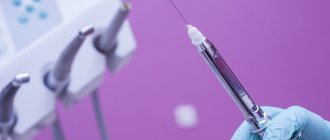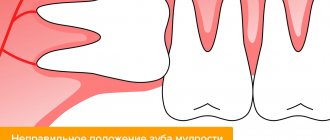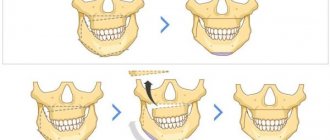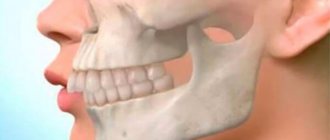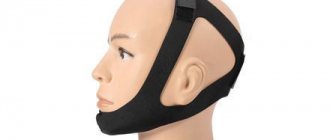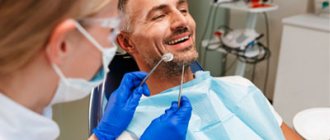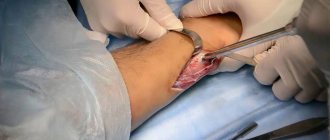Anesthesia methods in dentistry
All methods of anesthesia in dentistry are divided into general and local. General anesthesia is general anesthesia and intravenous sedation. That is, drugs are used that affect the entire body, and not just the oral cavity. This is a standard general anesthesia that is used not only in dentistry, but also in other branches of medicine. Local anesthesia is the familiar “freezing”, administered by injection. Xenon therapy can also be used in combination with general or local anesthesia.
Local anesthesia is most often used in dentistry. There are many indications for its use. These include:
- cleaning teeth from deposits;
- dental treatment of any complexity;
- removal of dental units;
- performing manipulations on the gums;
- surgical manipulations in the oral cavity;
- implantation or preparatory measures (but in some cases general anesthesia is recommended).
Local anesthesia has obvious advantages. The drugs are safe, they do not negatively affect the body, do not cause side effects and are eliminated quickly. At the same time, the techniques completely relieve pain of any nature.
Local application of anesthetics involves the use of special syringes with a very thin needle to avoid pain during injection. Main types of local anesthesia:
- Applique. It involves applying a pain-relieving anesthetic in the form of a gel. It is used primarily for oral hygiene and removal of deposits, especially if ultrasound is used for this. Its effect is short-lived.
- Infiltration. This is the standard injection “freezing”, which is carried out in almost all procedures. The injection can be injected into the mucosal tissue, bone or periosteum. In this case, the dentist must take into account the anatomy of the upper and lower jaw.
- Conductor. Used for long and complex surgical interventions. An anesthetic with a high content of the active component is selected. It is injected directly into the nerve, so the effects of anesthesia last longer and affect a larger area. Conductive anesthesia can be used during operations, tooth extraction, and when installing several implants at the same time.
Reasons why anesthesia does not take effect
A patient comes to me and says that anesthesia does not work on him and that the last time he had a tooth removed under anesthesia. And now we are supposed to work on tooth extraction. I honestly say that he may well go to the previous clinic, where he had general anesthesia, because... I don’t know the real reasons why the anesthetic didn’t work and why the doctors then switched to general anesthesia. Then the patient decided to remove the tooth from me without general anesthesia, with ordinary anesthesia. And it turned out that the anesthesia worked great and we removed the tooth painlessly.
I want to tell you in what cases anesthesia does not work. You can understand this, you can prepare for it and make sure everything goes well.
- It is not recommended to drink any alcohol in any quantity within 24 hours. Because the anesthesia will not work. How it works? The anesthetic reduces pain sensitivity by acting on the nerve endings going to the tooth. Alcohol also affects the nerves - it relaxes. And, in particular, it relaxes those small branches of nerves that innervate the teeth. And therefore, if you drink a glass of wine or a glass of beer, the nerves from the tooth will also be “relaxed” for about 24 hours: until the alcohol is transformed in the kidneys and liver and is eliminated from the body naturally. Usually, during anesthesia, pain sensitivity goes away immediately, that is, the anesthetic solution is perceived normally by the nerve fiber. And if it doesn’t work, one of the possible reasons is that there was alcohol in the blood, and it could even be one glass of wine!
- When there is a lot of swelling and inflammation inside. Inflammation is an acidic environment, the pH of which inactivates the injected anesthetic solution immediately. Those. the injected anesthetic solution, entering a place next to the tooth, cannot act on the nerve endings, because there is an acidic inflammatory environment there. When does this happen? When a visit to the dentist is postponed until the last minute, to such a state that it becomes more and more difficult to help.
- When your own adrenaline goes off scale from fear and general tension in the body, when the muscles of the neck, shoulder blades, back of the head, and upper shoulder girdle are so tense that the blood simply does not circulate due to tightness and muscle tension. All this does not help the anesthesia work; the substance simply does not reach the recipient. You need to take three deep, slow breaths, relax, relieve muscle tension in your shoulders and try not to concentrate on your images of fear, but to think about the good.
- Good anesthetics of the latest generation are effective. I use Ultracain DS forte in different dosages. I consider other, cheaper anesthetics not very effective. Although many doctors say that they are the same as Ultracain DS forte only one and a half times cheaper. I believe that you cannot skimp on anesthesia. It must be a priori good. No options. Good pain relief means job success and patient peace of mind.
Anesthesia does not work: what to do?
Situations where anesthesia does not work are extremely rare. Less than 1 percent of patients are sensitive to a particular drug, so choosing the right type of anesthesia is key. Frequent reasons for effectiveness are incorrectly selected dosage of the anesthetic or errors in its administration.
When using anesthesia, you must take into account the following health conditions:
- If you are prone to allergies, asthma or diabetes, medications without preservatives and with a low concentration of epinephrine are used. The funds are selected individually, taking into account the analysis.
- For heart pathologies and high blood pressure, medications with a minimum of epinephrine or without it are used. Also, they should not contain adrenaline. In these cases, xenon therapy or intravenous sedation may be used.
- For pregnant and lactating women, epinephrine dosages should be kept to a minimum. Then it cannot cross the placenta and enter breast milk.
Sedation and anesthesia are completely safe if performed by an experienced specialist. When carrying out long and complex interventions, such as implantation or prosthetics, sedation is even a recommended method, since the operation becomes more comfortable for the patient.
Our doctors select anesthesia individually. We offer all types of dental services: whitening, cleaning, surgical and therapeutic treatment for adults and children, installation of crowns, veneers and dentures. You can find out the clinic’s prices and make an appointment through the website or by phone.
Recommendations before visiting the dentist:
- The night before your appointment, drink lemon balm or chamomile tea before bed. These natural remedies have excellent calming effects.
- If you have constant strong feelings, before each dentist appointment, it is recommended to take a course of light sedatives a week before visiting the doctor. For example, “Afobazol” and “Tenoten”, they calm the nervous system, improving well-being and relieving anxiety before dental surgery. Drugs such as valerian and motherwort are best taken in tablets: tinctures are alcohol-based, which impairs the quality of pain relief.
- For the same reason, you should not drink alcoholic beverages at least 24 hours before your dentist appointment. Alcohol is eliminated from the body within 72 hours, but the products of its metabolism remain in the body for another week. To speed up the cleansing of the body from toxic substances, it is recommended to take sorbent preparations.
- Get a good night's sleep and eat before your appointment. This way you will save yourself from additional stress, and, consequently, from unnecessary problems during dental procedures.
- Be sure to tell your dentist about any medical conditions you have and the medications you are taking! This will help the doctor choose the right method of pain relief and anesthetic. In addition, taking certain medications can greatly reduce the quality of pain relief.
The main recommendation would be a careful approach to choosing a dental clinic and doctor. After all, a competent dentist, even if difficulties arise with administering anesthesia, will be able to find the right way out of the current situation.
Dentist advice
Osmanov Konstantin Gennadievich
Discuss concerns about the procedure with your dentist. Ask questions about medications used for pain and what to expect during and after treatment. Get a medical history from your physician, including information about allergies and other medications you take, including over-the-counter and prescription medications and dietary supplements.
Possible reasons
Note that ineffectiveness of the anesthetic drug is extremely rare. Typically the cause is the following factors:
- According to medical statistics, this list is topped by improperly stored injections or expired injections. This situation can often be encountered in little-known dentists.
- Many people know that the presence of alcohol in the blood can affect the effect of painkillers, or rather, provoke their inaction. If a patient came to the dentist for dental treatment while intoxicated or with a hangover, it is not at all surprising that the drug did not work.
- Insufficient experience of the doctor who uses the wrong drug, too low a dosage, too thin a needle, etc.
- Diseases of the mucous membrane accompanied by swelling. Thus, the medication may not reach the nerve endings. Again, this is only possible with low qualifications of the doctor. An experienced specialist knows all the nuances and anatomical features, so such an oversight is excluded.
Why might painkillers not work?
The effect of an anesthetic drug is always individual, and sometimes, even with the calculated dosage, the patient complains that the gums remain sensitive, and he is afraid to begin treatment. It may depend:
- From the specific location of the nerves in the gums and soft tissues;
- From the psychological mood of the patient (yes, the more we are afraid, the worse the drug can act);
- From the release of adrenaline during stress;
- From the body's immunity to a specific substance;
- From alcohol abuse.
Also, immunity to painkillers is possible in case of severe suppuration at the site of anesthesia: a large accumulation of pus blocks the effect of anesthesia.
Important!
At As-Stom dentistry, they always accommodate the patient halfway if he says that he still feels pain. The doctor will administer an additional dose of the drug, or change it in case of immunity, and in case of severe stress, he will offer the patient a sedative, turn on a distracting movie on the screen, and provide a comfortable blanket.
If you are seriously anxious, you may want to ask your dentist directly what anti-anxiety medication you can take before treatment to help reduce your anxiety levels.
Psychological factor
We should also talk about the moral state and psychological state of the patient. People who are very afraid of the dentist are called dentophobes. This category of people comes to the doctor only in advanced cases, when the pain can no longer be endured or it is a purulent process. As soon as the patient crosses the threshold of dentistry, the heart begins to beat faster, the body actively produces adrenaline, as a result of which spasm of the smallest blood vessels occurs. It is for this reason that the anesthetic is ineffective.
To eliminate this factor, dentists recommend starting to take sedatives at night 2-3 days before. A conversation with a doctor, a detailed description of the process, a cozy atmosphere and pleasant music are conducive factors that will help you relax as much as possible.
Expert advice
So, now let’s look at the unique recommendations of doctors that will help prevent inaction of anesthesia:
- Alcohol should not be taken three days before visiting the doctor. If a trip to a medical facility was not planned, and you drank alcohol the day before, the situation can be resolved with the help of enterosorbents. Even regular activated carbon will do. You need to drink the appropriate dosage for your weight twice with an interval of 1-2 hours.
- If you do not want to take sedatives. Replace them with a soothing tea, mint tea, a warm bath with lavender, etc.
- To normalize your psychological mood, try to think about positive aspects. Good emotions will help you overcome your fear of the dentist and successfully undergo the necessary dental procedures without pain and discomfort.
Anesthesia for children during dental treatment
In pediatric dentistry, the choice of anesthetic depends on the age of the child, the characteristics of his immunity and nervous system. Sedation through a breathing mask is often used - especially at a young age, when it is still difficult to explain to a child that he needs to sit still and endure an injection with a large and scary syringe in the gum. The dosage of the sedative is designed for approximately 10-15 minutes - this time is enough to calm the child and carry out all the necessary manipulations.
General anesthesia is also used in pediatric dentistry, although it is recommended in extreme cases.
In our dentists “As-Stom” for dental treatment for children
Injection anesthesia is carried out, and if the child is afraid of an injection, application anesthesia is first applied. If necessary, to exclude an allergic reaction to an anesthetic drug, a pediatric dentist can give a referral for allergy tests.
What is dentistry under anesthesia?
By the word “anesthesia” we are accustomed to understand a complete disconnection from reality, although in fact sedation also refers to anesthesia. When the procedure is performed under anesthesia, the central nervous system (CNS) is depressed, which allows you to “switch off” without feeling fear and pain.
Both sedation and general anesthesia are carried out under the supervision of an anesthesiologist, with constant cardiac monitoring, and have a certain list of contraindications.
Sedation
– another common type of dental anesthesia, but it affects the nervous system and control of the patient’s psycho-emotional state. A person under sedation remains conscious, but is in a state of a kind of half-sleep, relaxed and calm, his sensitivity is dulled, his emotional background increases, and the body does not react to dental operations as if it were severe stress. To immerse him in this state, a sedative is administered intravenously, and additional pain relief is performed with local anesthesia.
Interesting fact:
The first dental operation under general anesthesia was performed in 1846 by dentist T. Morton, and this was, in principle, the first operation under anesthetic. Local anesthesia began to be used in dentistry later, from 1881.
Important!
Dental procedures under general anesthesia are not carried out in all clinics: this requires additional equipment, an anesthesiologist, experience with such anesthetic drugs, and an appropriate license. At As-Stom dentistry, operations under general anesthesia are not performed!
What type of anesthesia should I choose?
Choosing an anesthesia that will work specifically for you and will be most effective for a specific treatment is the task of the dentist. To prevent him from making a mistake, you definitely need to tell him about your allergy to one or another component of the drug (if you know about it), as well as about pregnancy or lactation, if you are currently going through this period. In the case of treating a child, the doctor will certainly consult with the parents first and select a safe drug.
You can make an appointment with a dentist by phone 597-05-05
or using
the online application form
on the website.
Don't forget about our promotions and discounts on dental treatment
, and be healthy!
Application of local anesthesia
In the treatment of caries, pulpitis, gum disease, tooth extraction, prosthetics and implantation, in other cases in which the doctor’s manipulations can cause pain, local anesthesia is used.
This type of anesthesia has a minimum of contraindications:
- individual intolerance to the components of the anesthetic (an alternative drug is used);
- mental disorders, psychomotor agitation or taking medications that increase it;
- diseases dangerous by oppression of respiratory functions;
- first trimester of pregnancy, lactation period.
Before starting treatment, the dentist interviews the patient, collects information about his state of health, and checks that there are no contraindications to the use of the anesthetic.
